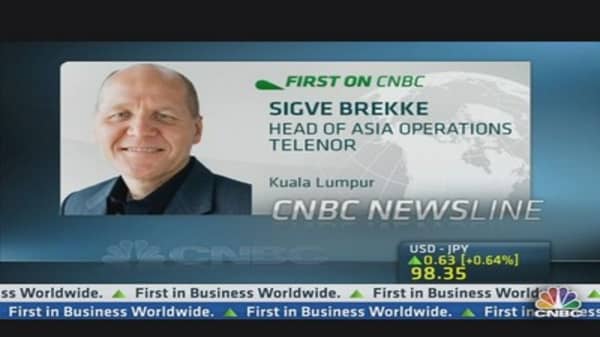The government has said it will finalize the 15-year licences by September and the chosen operators would need to launch services within nine months. They have to provide voice services across three-quarters of the country within five years and data services across half of it.
Political Risk
The telecommunications bill is still making its way through parliament, but the government statement said it was expected to be passed in the current session.
"These issues could have been raised and addressed with the government much earlier in the process," said Marae Ciantar, a lawyer with the Singapore-based firm Allens, which has advised international telecoms companies seeking to invest in Myanmar.
The motion passed by Myanmar's lower house on Wednesday also stipulated that licences should go only to bidders that had domestic companies as partners in a joint venture.
"The attempt to impose such a requirement does give rise to real concern for investors," said Ciantar.
(Read More: HTC Seeks Myanmar Edge With Local Front Phones)
He noted that the foreign investment law passed last year did not include such restrictions on the telecoms sector, while the government "made it very clear during the tender process that joint ventures with local partners were not required".
Soe Yin, a parliamentarian with the pro-government Union Solidarity and Development Party, which is made up largely of retired military officers, said the motion called for further discussion on the issue, but did not entirely reject the notion of full foreign ownership.
"Some people are not happy we are giving all these tenders to the private foreign companies," he told reporters in Naypyitaw, the capital.
Ooredoo's Sell said there was no obligation under the licence terms to take its Myanmar unit public, but did not rule doing so in the future.
"We quite like IPOs - it contributes back to the society we are making money from, helps to develop capital markets and it's good for customer loyalty too," said Sell.
(Read More: Myanmar to Quadruple Economy by 2030: McKinsey)
Building telecommunications networks is expected to bring a leap forward in digital technology that could speed up economic development in Asia's poorest country after Afghanistan.
But Vodafone and China Mobile abandoned their joint bid, saying it did not meet their "internal investment criteria".
The remaining short-listed contenders, some of whom had local or foreign partners, were:Singapore Telecommunications, KDDI, Digicel, Axiata, Bharti Airtel, MTN, Vietnam's Viettel, and Millicom International Cellular.
MTN said it "still considers Myanmar an attractive market. To this end, we will review other options as they become available."





